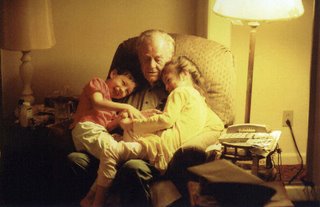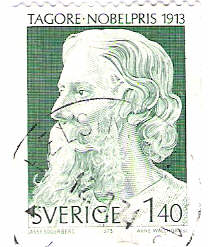In a sense, the place is wide open, but not in the way the New York and Baltimore and Washington used to be wide open--vulgarly, garishly, hoggishly. The business is achieved with an air, almost a grand manner. It is good-humored, engaging, innocent. There is no heavy attitude of raising the devil. [...] It is a friendly place, a spacious and tolerant place, a place heavy with strangeness and charm. It is no more American, in the sense that American has come to carry, than a wine festival in Spain or the carnival at Nice. It is cut off sharply from all the rest of this dun and dour republic.
-- H. L. Mencken, The Baltimore Evening Sun, July 21, 1920
Earlier this week there was a piece on NPR's All Things Considered about an American woman of Thai birth who is seeking to get more connected to her foreign roots. It is multi-culti with a vengeance--even includes folk-dancing! In brief, this San Francisco resident bemoans her parents' decision to try to secure her a better life in America.
PUENG VONGS: I realize that this was the missing piece for me growing up in the Midwest. My family does not have the support of a community, classes, a temple. In our isolation, my parents made the decision that it was better to adapt to our new culture. They knew the difficulties of not speaking well in America. So eventually, they began speaking to us strictly in English and a language barrier divided us.So, to redress this perceived wrong, she joins Thai-American children at the local temple for language lessons, dancing lessons, and even this:
VONGS: At the temple before each lesson day, students sign up for the Thai National Anthem. I tower over most of them. I sing the complicated Thai phrases routinely, but my mouth stays shut. I'm so not quite that advanced. I must admit that I'm a little jealous of their knowledge at such an early age. But as we watch the unfurling of both the Thai and American flags, I am also inspired. When I was growing up, family believed that you had to sacrifice one culture for the other. One of the things that students are learning is that you can keep both.
That's a bit much, even for a deracinated San Francisco culturatus (culturata?). I wonder how many other Thai-Americans are unabashedly grateful to have grown up here? Who might feel, even, relieved not to have grown up in Thailand, because of certain risks that aren't quite so prevalent here? I wonder if All Things Considered could even do a story on them without duct-taping their own heads first?
I understand the yearning for the places and things of one's childhood. Even though I'm the first man in my family not to grow up on a farm, and I still feel a tug of nostalgia whenever I pass through rural settings. Same with being around small Southern towns. But I also remember something my father told me, a little prayer he used to mutter when he was out toiling in the hot sun as a youth: "Lord, if you get me out of these fields, I'll do my best to stay out!" He did, and I now have what every parent of his generation wanted to give the children of my generation: a better life. I hope Ms. Vongs life is better than her parents' too, and that she give due consideration as to why it is.




